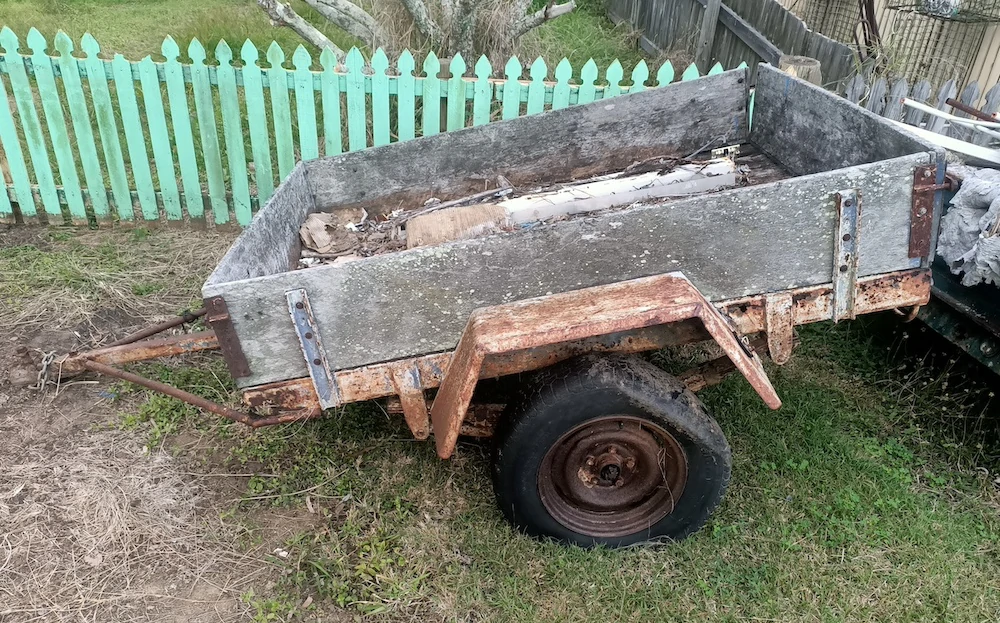
Menu
$ AUD
-
$ AUD
-
$ NZD
-
$ USD
-
€ EUR
-
$ CAD
-
د.إ AED
-
$ ARS
-
R$ BRL
-
£ GBP
-
Ft HUF
-
₹ INR
-
kr. ISK
-
KSh KES
-
RM MYR
-
K PGK
-
₲ PYG
-
₱ PHP
-
zł PLN
-
₽ RUB
-
R ZAR
-
฿ THB
-
₺ TRY


Are you looking to spend time at the river to cruise or fish with the family this weekend? Do you know how to check if your boat trailer brakes are suitable?
There are a few things to remember when it comes to boat trailer braking systems and their minimum requirements.
GTM, or gross trailer mass, as referred to by the Australian towing regulations, is the total mass allowed to be imposed on the trailer’s axle, i.e., a trailer loaded to capacity.
You need to consider the trailer’s total combined weight, including:
The main thing to consider when choosing suitable boat trailer brakes is your state and country’s local rules and regulations. We have mentioned the Australian legal requirements. If you live outside of Australia, you will need to conduct further research into your local requirements.
Once you know your local requirements, ask yourself, ‘where will I be using my boat trailer?’ Will it be used in your local freshwater lake or dam? Or will it be used in the ocean or saltwater estuary?
Considering these questions is important because the price for saltwater versus freshwater-suitable components varies considerably.
If you only intend to use your trailer in freshwater, you can get away with using either painted (only if your trailer will see very little freshwater use, for example, once a year) or galvanised parts. Galvanised parts are the better option but generally cost more. However, this cost is more than justified over the life of a trailer!
Using anything that will not stand up to the harshness of saltwater would be pointless. And for this reason, you will want either galvanised, stainless steel or even aluminium (rims) components.
Remember that stainless steel components are often triple the price of inferior parts. You will need to consider this and ask yourself how often you will be using the trailer and how thorough you are willing to be with your wash down and maintenance.
There are two commonly used braking systems for boat trailers.
Let’s consider both of the above.
This option is inexpensive and basic, meaning fewer things can go wrong. In addition, this brake system can be mechanical or hydraulic (see our article on trailer brakes for more information).
This brake system is common on large boat trailers where brakes are operated from the towing vehicle, and there is a breakaway system. You will pay more for this system. However, it is very reliable if set up correctly and maintained. If you plan on using your trailer in saltwater, using stainless steel brake lines is a good idea (this applies to either system).
Given your trailer may be exposed to corrosive saltwater, we advise you to purchase and install an easily cleaned braking system to wash off seawater after every use to prevent future corrosion issues.
For this reason, brakes that use a caliper method are best, as they allow you to wash the trailer brakes well with fresh water.
It is worth checking that all of your lights are working while you’re at it.
For small trailers, choose an override braking system with the appropriate protective coating to suit the intended use. For larger trailers, you will need the brakes to operate on all wheels, and depending on where you live, you may need a breakaway system.
Remember that maintenance is the key to longevity. Whether you have been in fresh or saltwater, giving your trailer and brakes a wash down is always a good idea before putting it away.
Looking to build your own boat trailer? Check out our detailed boat trailer plan.
Like this post? Follow, like or share on your favourite social platform. You can leave us a comment below!